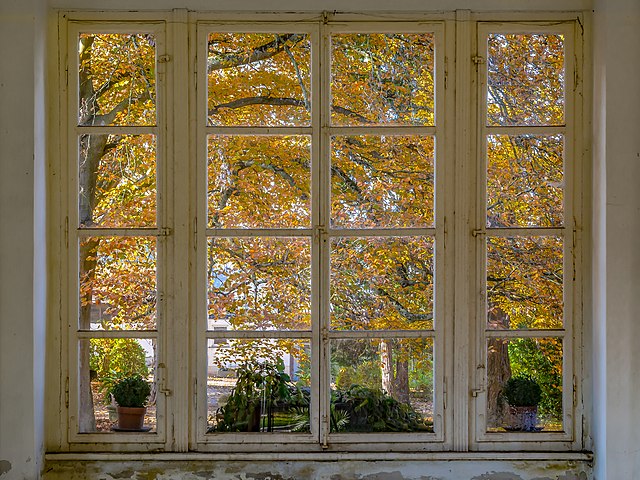Winter is a difficult season. Nothing works well in the extreme cold – including us. Doors that are usually quiet, now screech horribly. Cars stutter and take forever to warm up. The ground itself is no longer trustworthy and can upend you in seconds. It takes longer to get out of the house because of all the extra layers you have to put on, and everything you touch feels taut, like it’s on the verge of shattering.
How can you ensure your winter months are spent in greater equanimity? Well, if you follow Traditional Chinese Medicine (TCM) theory, you should take this time to strengthen your kidneys. According to TCM, winter is kidney time. This means that, if your kidneys are weak, you will not handle winter as well. On the other hand, winter is also an excellent time to take care of your kidneys and try to heal them, so there is opportunity here as well.
Why is winter particularly taxing for your kidneys? Well, for one thing, your kidneys strongly dislike the cold. Older, retired people know this well. As their kidneys age and weaken, they can’t manage the cold as easily and prefer to spend their winters in a warmer climate. Meanwhile, children with their young and healthy kidneys barely even notice the cold and can play outdoors for hours.
Other signs of weakened kidneys? Well, your kidneys are located in your lower back, so this means that if your kidneys are weak, you will have a tendency towards lower back discomfort and pain. It’s not just all the snow shovelling which causes this; there is usually an underlying weakness that contributes.
Your kidneys are partnered with your urinary bladder, so frequent urination, weak urine flow, or incontinence are additional signs. A healthy kidneys and bladder have the ability to pull calcium out of your urine so it can be stored in your bones. So, when your kidneys become weak, osteoporosis is another result, as well as weak nails and loosened teeth.
Other signs and symptoms include weak legs, and weak or painful knees. Your complexion will tend to be a bright white (indicating cold), and there may be dark shadows or baggy areas underneath your eyes. There will also be a tendency towards edema, particularly in the lower legs, as well as loose stools. If you have just one or two of these symptoms, you don’t necessarily have weak kidneys. However, the more of these symptoms you have, the more likely it is that you have some strengthening to do.
The effects of weakened kidneys aren’t just physical; they can also show up in your emotions. Someone whose kidneys are weak will tend to be more fearful, and suffer from anxiety attacks. They will feel more apprehensive, panic easily, and tend to be suspicious and distrustful. With enough exposure to these kinds of feelings, a sense of inferiority and inadequacy is also common, along with low self-esteem.
These feelings of fear and inadequacy are a double-edged sword. They are not just signs of weakened kidneys; they can be a source of kidney weakness as well, if felt for a long enough period of time. People with chronic illnesses, who feel fear and inadequacy in spades, will have a tendency towards kidney weakness for this reason. All illnesses, if experienced for a long enough period of time, will eventually make their way into your kidneys.
The kidneys house the will and are the source of our willpower. Therefore, if your kidneys are strong, you will be able to set goals easily and follow them through. On the other hand, if your kidneys are weak, you will tend to be easily discouraged and led off course. You will drop projects before they are finished, and lack the drive to continue with them.
So, what can you do? How can you strengthen your kidneys? Well, prevention is part of the cure. Make sure that your lower back area is well protected against the cold, particularly during the winter months. Please, no bared mid-riffs! In Japan, people traditionally wear a haramaki around their mid-section. This is a band of soft, stretchy cotton that keeps the lower back and digestive organs warm, so that blood can continue circulating well and the body remains strong.
To further protect your kidneys, you should avoid creating internal cold too. This means, no cold foods or drinks. Drink warm teas, eat your food well-cooked rather than raw, and avoid cold indulgences, like ice cream. Tropical fruits also tend to have a cold energy inside your body and are best avoided, especially during the winter months. These foods would include; citrus fruits like oranges, lemons and limes, as well as melons, and bananas.
Warming spices, like cinnamon, fenugreek, black pepper, and cardamom invigorate the kidneys and help them work better. Additionally, warming herbs, like eucommia bark, ashwagandha root, celery seed, cordyceps, morinda root, and Japanese teasel root can strengthen your kidneys. But be careful! Your kidneys also dislike becoming too dry, so moistening kidney tonics like goji berries, prepared rehmannia root, and shatavari root are best included with any kidney formula.
To preserve your kidney strength, it is also important to avoid excessive stress, particularly physical stress. This will deplete the kidneys and age you. So, don’t overwork yourself, or stay up too late at night. Make sure you take breaks, allow yourself time to relax, and be sure to get enough sleep.
This applies to the good stuff too. Don’t spend all your energy at parties, have too much sex, or over-do your exercise routine. Yes, socialization, physical closeness, and exercise are healthy, but not if you push your kidneys past their limit. Even good things can be bad for us when done to excess. “Everything in moderation” is an excellent motto to have here.
I hope this has given you some food for thought as we continue to struggle through the dreary months of winter. In the west in particular, we seem intent on weakening our kidneys. We are so fond of cold drinks! And also of overwork! We will actually pat ourselves on the back when we’ve pushed ourselves hard in pursuit of a goal. This seen as a sign of dedication and strength, and it is a sign of strength, of course. But keep in mind that this strength is fleeting. Please preserve it for something truly important to you, not on some whim from your boss.
Now that you know all the ins and outs of kidney health, you can take steps to protect yours. The kidneys are the root of your strength and vitality. Once they’ve become depleted, they’re incredibly hard to regenerate. Please protect yours.



